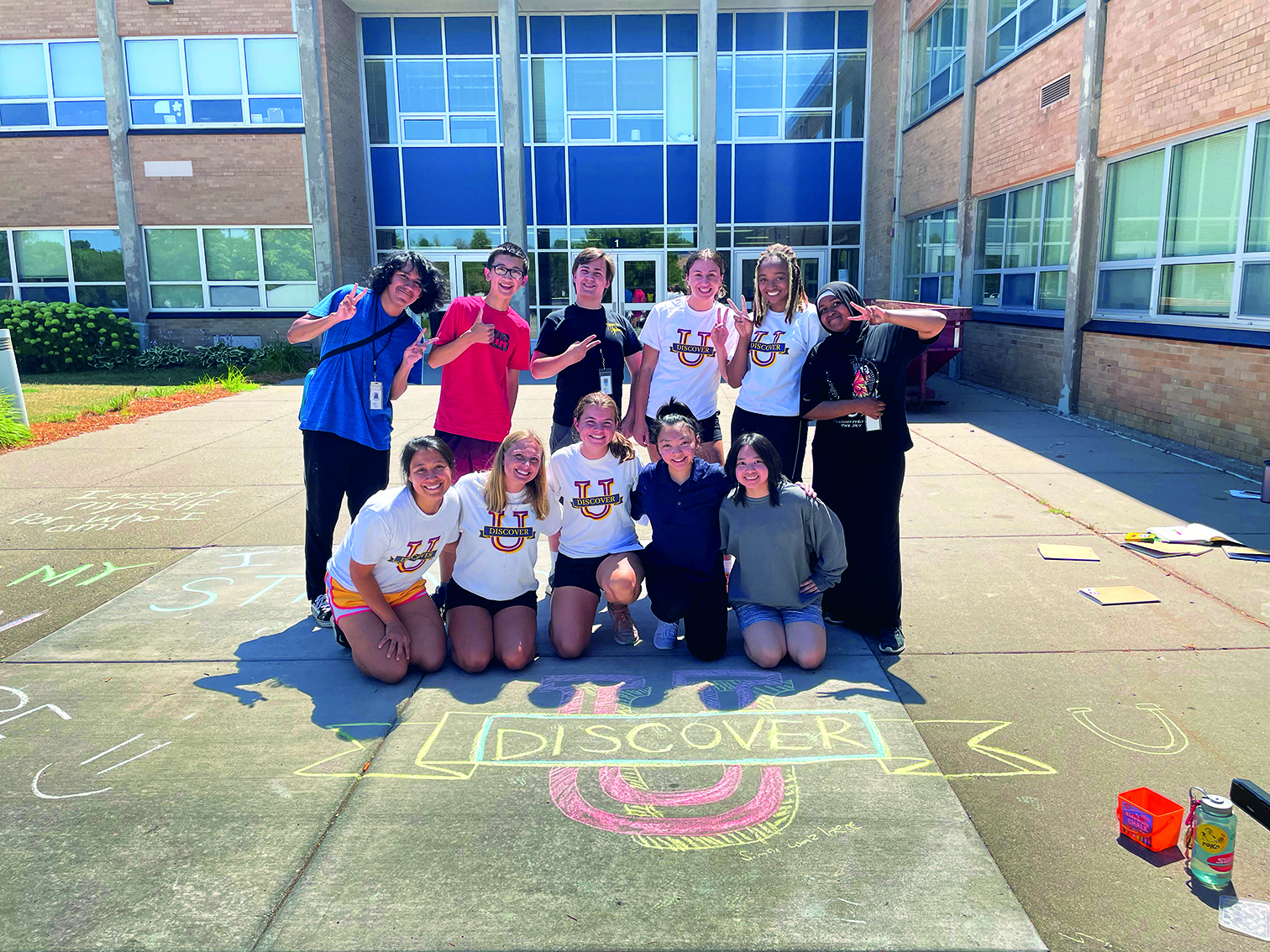Setting the Stage for a Healthy Life: Unique Mentoring Program Addresses Multiple Aspects of Well-being
Middle- and high-school student social, emotional, and physical health is a top priority for HYD-PRC researcher, Barb McMorris and UMN School of Public Health researchers Katie Arlinghaus and Nancy Sherwood. That’s why they have teamed up with Minnesota’s Columbia Heights Public School District to implement a program that uses a tiered mentorship approach to integrate social emotional learning into physical activity and nutrition.
Their out-of-school program, “DiscoverU,” funded by the Centers for Disease Control and Prevention as part of the “Whole School, Whole Community, Whole Child” framework, seeks to promote overall health and well-being for middle and high school students and build more collaborative relationships among education leaders and local health sectors. “Opportunities to engage in physical activity and healthy eating with mentors, coupled with social-emotional skill building, such as managing emotions, setting and achieving goals, and establishing supportive relationships, has the potential to enhance multiple dimensions of adolescent health,” says Barb McMorris, the grant’s co-principal investigator.
The program comes at a time when school districts need it most, says Katie Arlinghaus, co-principal investigator. “Kids' emotional and mental health is at high risk coming out of the pandemic, and there's a great need for this program,” says Arlinghaus. “We're seeing a lot more violence, stress, anxiety, depression, and suicide ideation, as well as declines in a lot of physical health markers, including a significant increase in type 2 diabetes.”
Kristen Stuenkel, director of community education and communications with Columbia Heights Public School District (CHPS), co-created DiscoverU with Arlinghaus and says that CHPS is a perfect fit for the program. It’s a relatively small school district with 3,400 students, but it is also racially, ethnically, and socioeconomically diverse. Over a third of students are English learners and 70 percent qualify for free or reduced lunch, says Stuenkel. “Many people within those demographic characteristics have higher risks for health disparities,” she says. These disparities are often systemic and tied to racism and other social determinants of health.
“Creating a program that was designed for communities who typically carry a disproportionately greater health burden and where health and educational programming is often less accessible was an important factor for us,” McMorris said. She brings unique aspects to the program in terms of a healthy youth development lens, which stresses adolescents’ strengths and assets, and her experience of not only researching mentoring but being a youth mentor herself.
Discovering the mentor within
DiscoverU uses a tiered mentoring system where undergraduate students, most from the U of MN, are trained to mentor high-school students, who in turn mentor middle-school students.
The program runs after school two days per week for eight weeks during this Fall trimester, and then again for eight weeks during the upcoming Winter trimester. During the first three weeks of the program, college mentors meet with middle-and high-school students separately. After the high-school students gain some mentoring skills, the middle-school students join them beginning in week four, says Mary Onchiri, DiscoverU project coordinator and SPH Community Health Education MSW/MPH dual degree student.
During each session, students participate in at least two physical activities, ranging from weightlifting to a popular game called Gaga ball. CHPS also has a robust school garden, which has allowed students to learn from mentors about nutrition first-hand, and to have an opportunity to make their own snacks, pickle vegetables, and more.
Students take part in large and small group discussions and talk about what Onchiri calls “big feelings” and how to handle them. They set health goals and identify their core values, such as family, respect, honesty, or faith. They also talk about challenges that they've run into, how to overcome those, and how to navigate conflict and cope with stressful situations. “We are giving them skills on the front end to hopefully set them up for a healthier life in the future, not just physically, but also emotionally,” said Onchiri.
As the college and high school mentors model these skills and behaviors, the younger students develop a greater understanding of their importance for their overall health and future success. “Students really enjoy hearing what the college students have to say,” says Stuenkel. “It’s more fun for them than just engaging with other adults, because college students are kind of in between adults and high school students, so they serve as a bridge [to adulthood].”
“Kids are facing a lot right now in schools,” says Arlinghaus. “And so, having programs like this where they feel that they belong and are safe is really important.”
Original article by Adam Overland for the University of Minnesota’s School of Public Health newsletter - Advances. To read the full article, please click here.
